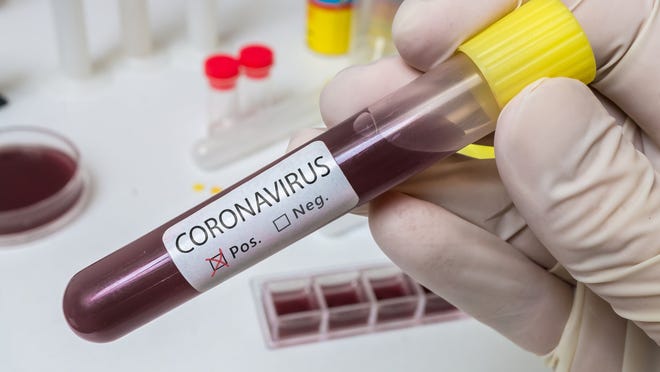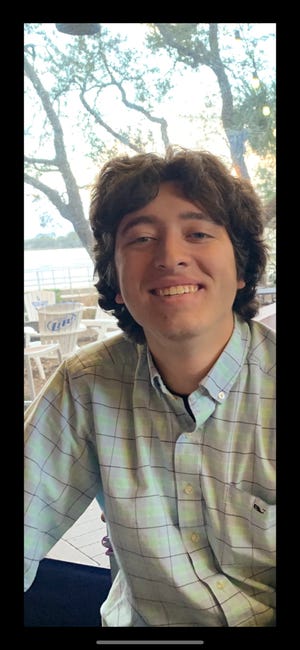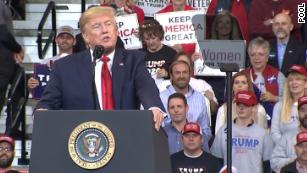Dennis Wagner USA TODAY
How many Americans are infected by coronavirus? How many have been tested?
Nearly two months after the first known case of the respiratory disease was reported in the United States, and a day after the World Health Organization declared it as a pandemic, federal agencies remain short on answers.
The Centers for Disease Control and Prevention did not respond to questions from USA TODAY on Thursday about the nation's detection program, which has been plagued by a shortage of test kits, flawed science and dubious data.
Tracking the outbreak:US coronavirus map
There were 1,215 confirmed or presumptive positive cases of COVID-19, with 36 fatalities in the United States as of Thursday, according to the CDC's website. The agency is no longer issuing data on the number of tests taken.
Infectious disease experts, however, say the official tally is only a fraction of the reality, because it does not contain data from some states, and the lack of test kits has prevented diagnosis for thousands who may be ill.
A Johns Hopkins University data dashboard, which, unlike the CDC's website, is updated throughout each day, counted 40 deaths and 1,663 confirmed U.S. cases as of late Thursday night.
Sen. Lindsey Graham was immediately tested. What about the rest of us?
In late February, as the viral insurgency bloomed in the U.S. about a month after the first identified case in Washington state on Jan. 21,, epidemiologists at Cedars-Sinai Medical Center in Los Angeles calculated that up to 9,000 Americans would be infected by March 1.
Their study noted that contagious diseases spread in a geometric progression, and "the opportunity window to contain the epidemic of COVID-19 in its early stages is closing."

More recent developments place that prediction in a stark, personal context: Americans are under quarantine or self-monitoring, stock markets have plunged, workers are telecommuting and major events are canceling.
Consider Kyle Edgar, 20, who spent his spring break last week with thousands of people at bars and fraternity parties at University of Maryland in College Park, and at a gathering for modified car aficionados in nearby Montgomery County.
Afterward, Edgar developed a sore throat, congestion, chills and a cough. Due to remission from bone cancer, he didn’t want to take any chances with his immune system.

Edgar said his regular physicians declined to test for coronavirus, but directed him to another healthcare facility, which sent him to a third location. There, an employee suggested he visit a nearby clinic for sexually transmitted diseases, where a doctor in a mask and bodysuit took nose and throat swabs.
The process took three hours, said Edgar, a freshman at University of South Carolina. His results are expected by Monday.
“It was pretty complicated going through all those hoops,” he added. “But I wanted to get it done.”
Counting the people:We're 'equipped' to count nation's population amid coronavirus crisis, census officials say. Lawmakers aren't so sure.
In a nationwide patchwork, Americans have reported similar troubles from New York state to Washington state. And their experiences raise hackles when compared to politicians and celebrities who sometimes are tested without delay.
Get the The Backstory newsletter in your inbox.
Sen. Lindsey Graham, R-South Carolina, who was at Mar-a-Lago recently for an event attended by an infected Brazilian official, reportedly secured a test despite having no recollection of contact with the individual.
Similarly, Utah Jazz players apparently underwent prompt testing after All-NBA center Rudy Gobert was diagnosed with the virus, even though the teammates apparently were a-symptomatic. His positive test prompted the NBA's decision on Wednesday night to suspend its season.
Testing is 'No. 1 issue' to resolve as US combats coronavirus pandemic
The national coronavirus picture, meanwhile, remains opaque.
In the absence of clear CDC tracking, some states are divulging numbers for COVID-19 testing, but with limited transparency.
California, for example, reported 177 positive cases out of 8,227 tests as of Wednesday , with about roughly 11,000 people self-monitoring due to possible exposure. But it is unclear whether the totals include testing done by private facilities.
California asks the state's 18 public health labs to report positive testing, but does not require it. State officials declined to be interviewed by USA TODAY.
So did authorities in Florida, which announced 35 presumed coronavirus cases as of Thursday, with 301 negative tests and 142 pending.
You asked us tons of questions about the coronavirus:We're answering them.
Testing for the virus uses reagents that extract, purify and stabilize genetic materials, or RNA, that are identified with COVID-19. Some protocols require two tests per individual, and it is unclear how states tally the results.
More significantly, because the CDC neither publishes nor collects comprehensive data, no one knows how many Americans have been tested or are infected.
Joseph Eisenberg, a professor of epidemiology at the University of Michigan, said testing is "the No. 1 issue that needs to be resolved right now" if the nation hopes to staunch the viral spread.
"It is really hard to understand why they haven't been prepared," he added.
In a void of federal leadership, he noted, universities and private businesses have begun taking "positive steps" to combat the disease even though they are "flying blind."
"We're really hampered by not having these tests to do something more systematic," Eisenberg said. "You can't target intervention … you're taking away a really valuable tool.
"This may be here to stay," he warned.
'Failing' of US healthcare system to test for coronavirus leads to political fallout
For Jessica Mason, who became sick after a Jan. 8 visit to Walt Disney World in Florida, illness is compounded by uncertainty.
Mason said she needed holes punctured in her ear drums to regulate the pressure and drain fluid. Then her congestion and upper respiratory symptoms returned. She said the Ohio Department of Health couldn’t tell her where to get tested for coronavirus, and urged her to self-quarantine.
“I’m worried and confused as to what the government wants me to do,” said Mason.
The turgid testing program in a nation renowned for advanced medical care and transparency has prompted comparisons to countries like South Korea, which reportedly tested 66,000 people in a single week.
The facts on coronavirus aren't all scary:So why so much fear?
Anthony Fauci, director of the National Institute of Allergy and Infectious Diseases, said the testing logjam constitutes a "failing" of the nation's healthcare system.
When compared with other countries that have rigorous programs, Fauci said, "We're not set up for that. Do I think we should be? Yes. But we're not."
That testimony came this week before the House Oversight and Reform Committee, where the chair, Rep. Carolyn Maloney, D-New York, delivered a scathing monologue.
"We are now in the middle of a global health crisis," Maloney said. "Unfortunately, when we look at the last three months objectively, it is clear that strategic errors and a failure of leadership impaired our nation's ability to respond to this outbreak."
Last week, Maloney noted, President Donald Trump described COVID-19 tests as "beautiful" and said anyone who needs an exam can get one.
"He was absolutely wrong," the congresswoman said. "My constituents are telling me they can't get tested … The president and his aides may think they are helping with political spin and happy talk, but the American people want the truth."
Opinion:I'm an epidemiologist. Here's what I told my friends about the coronavirus and COVID-19.
In Massachusetts, Gov. Charlie Baker, a Republican, on Thursday called on the federal government to give states the authority to test for COVID-19 at more hospitals and private and public labs.
While the Bay State had finally received more kits, Baker said agencies were strapped to process test specimens because the only approved testing center is in Boston.
“We need the federal government … to give hospitals and testing facilities here in Massachusetts that have the capacity to test, the material and then the approval that they need to actually begin to test," Baker said.
"I think there are probably a lot of people all over the country who are engaged in similar kinds of conversations. This is a critical issue for us.”
Contributing: Jayne O'Donnell, Joey Garrison and Kevin McCoy, USA TODAY.
115 MORE PHOTOS HERE
https://www.usatoday.com/picture-gallery/news/world/2020/01/22/deadly-coronavirus-spreading-across-china-reaches-u-s/4536705002/
Task force health expert contradicts Trump about coronavirus vaccine timing
By Maegan Vazquez, CNN Tue March 3, 2020
TEN DAYS LATER AND NOTHING HAS CHANGED
Washington (CNN)President Donald Trump was contradicted by a health expert on his coronavirus task force over the timing for a potential vaccine during a briefing Monday.
Trump was asked about a timeline for a vaccine during the Cabinet Room meeting with pharmaceutical executives and members of his task force.
"I don't know what the time will be. I've heard very quick numbers, that of months. And I've heard pretty much a year would be an outside number. So I think that's not a bad range. But if you're talking about three to four months in a couple of cases, a year in other cases," Trump said.
But Dr. Antony Fauci, the head of the National Institute of Allergy and Infectious Diseases, immediately corrected the President: "Let me make sure you get the ... information. A vaccine that you make and start testing in a year is not a vaccine that's deployable."

Trump defends holding campaign rallies even as coronavirus spreads
As Fauci explained the timeline, Trump folded his arms.
Fauci said: "So he's asking the question -- when is it going to be deployable? And that is going to be, at the earliest, a year to a year and a half, no matter how fast you go."
"Do you think that's right?" Trump asked the pharmaceutical executives at the table, just as Fauci finished speaking. "Well, I think treatment in many ways might be more exciting."
The pushback didn't come just from Fauci.
Throughout the meeting, Trump was hyperfocused on pressing industry leaders in the room for a timeline for a coronavirus vaccine and treatment. But experts at the table -- from the administration and the pharmaceutical industry -- repeatedly emphasized that a vaccine can't be rushed to market before it's been declared safe for the public.
"So you're talking over the next few months, you could have a vaccine?" Trump later asked Stéphane Bancel, the CEO of Moderna, a biotechnology company.
"Correct, (for) phase two (testing)," Bancel answered.
Fauci interjected: "He wouldn't have a vaccine. He'd have a vaccine to go into testing."
Trump said: "Oh, so you're talking in about a year."
Fauci said: "A year to a year and a half."
The President said that one executive was "talking about two months."
But Health and Human Services Secretary Alex Azar clarified that Regeneron, a biotechnology company that was represented in the room, would be ready for phase one testing for a vaccine in two months.
Leonard Schleifer, the CEO of Regeneron Pharmaceuticals, then underscored that "vaccines have to be tested because there's precedent for vaccines to actually make diseases worse. ... You don't want to rush and treat a million people and find out you're making 900,000 of them worse."
"That's a good idea," Trump said.
The President also said he agrees that any coronavirus vaccine has to be safe in order for it to be made widely available, but added: "Get it done. We need it. We want it fast."
Inovio CEO J. Joseph Kim, who was in the meeting, told CNN that Trump told the executives to contact him directly if they encountered holdups within the federal government.
A source familiar with the administration's response said the scientists and experts gathered for the meeting were able to convince Trump that it will likely take a year or longer for an effective vaccine to be on the market.
"I think he's got it now," the source said.
Washington (CNN)President Donald Trump was contradicted by a health expert on his coronavirus task force over the timing for a potential vaccine during a briefing Monday.
Trump was asked about a timeline for a vaccine during the Cabinet Room meeting with pharmaceutical executives and members of his task force.
"I don't know what the time will be. I've heard very quick numbers, that of months. And I've heard pretty much a year would be an outside number. So I think that's not a bad range. But if you're talking about three to four months in a couple of cases, a year in other cases," Trump said.
But Dr. Antony Fauci, the head of the National Institute of Allergy and Infectious Diseases, immediately corrected the President: "Let me make sure you get the ... information. A vaccine that you make and start testing in a year is not a vaccine that's deployable."

Trump defends holding campaign rallies even as coronavirus spreads
As Fauci explained the timeline, Trump folded his arms.
Fauci said: "So he's asking the question -- when is it going to be deployable? And that is going to be, at the earliest, a year to a year and a half, no matter how fast you go."
"Do you think that's right?" Trump asked the pharmaceutical executives at the table, just as Fauci finished speaking. "Well, I think treatment in many ways might be more exciting."
The pushback didn't come just from Fauci.
Throughout the meeting, Trump was hyperfocused on pressing industry leaders in the room for a timeline for a coronavirus vaccine and treatment. But experts at the table -- from the administration and the pharmaceutical industry -- repeatedly emphasized that a vaccine can't be rushed to market before it's been declared safe for the public.
"So you're talking over the next few months, you could have a vaccine?" Trump later asked Stéphane Bancel, the CEO of Moderna, a biotechnology company.
"Correct, (for) phase two (testing)," Bancel answered.
Fauci interjected: "He wouldn't have a vaccine. He'd have a vaccine to go into testing."
Trump said: "Oh, so you're talking in about a year."
Fauci said: "A year to a year and a half."
The President said that one executive was "talking about two months."
But Health and Human Services Secretary Alex Azar clarified that Regeneron, a biotechnology company that was represented in the room, would be ready for phase one testing for a vaccine in two months.
Leonard Schleifer, the CEO of Regeneron Pharmaceuticals, then underscored that "vaccines have to be tested because there's precedent for vaccines to actually make diseases worse. ... You don't want to rush and treat a million people and find out you're making 900,000 of them worse."
"That's a good idea," Trump said.
The President also said he agrees that any coronavirus vaccine has to be safe in order for it to be made widely available, but added: "Get it done. We need it. We want it fast."
Inovio CEO J. Joseph Kim, who was in the meeting, told CNN that Trump told the executives to contact him directly if they encountered holdups within the federal government.
A source familiar with the administration's response said the scientists and experts gathered for the meeting were able to convince Trump that it will likely take a year or longer for an effective vaccine to be on the market.
"I think he's got it now," the source said.
No comments:
Post a Comment